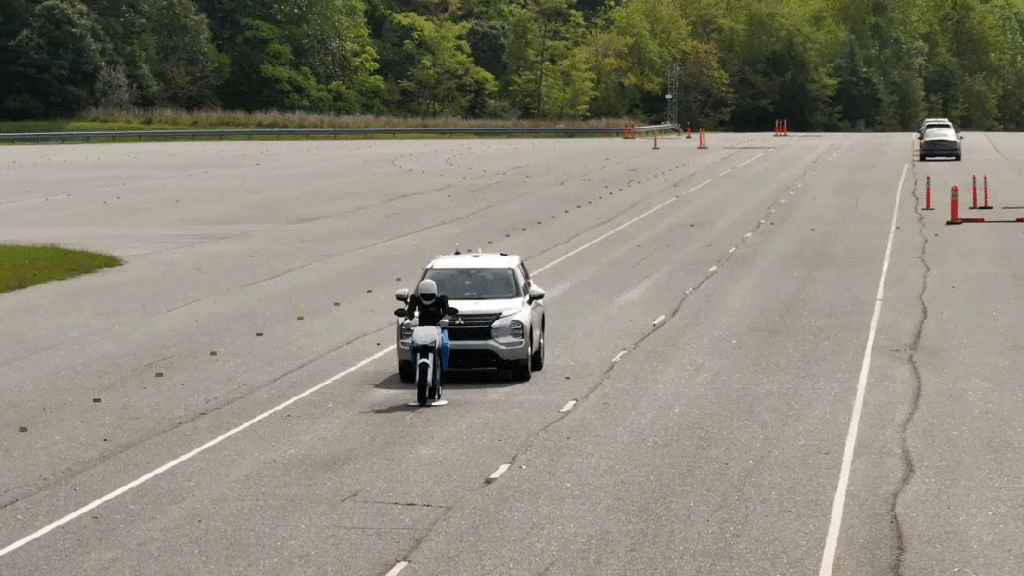Small SUV ‘Crash Avoidance’ Tech Does Not Keep Small SUVs Out Of Crashes

The Insurance Institute for Highway Safety tested 10 of the most popular small crossovers on the market and found that just one of them earned a “good” rating when it comes to vehicle-to-vehicle crash prevention. That is, uh, less than ideal — especially for folks who ride motorcycles and those of us who generally do not want to be rear-ended in the first place.
According to Bob: Why SUVs All Sort of Look the Same
The IIHS evaluated the Subaru Forester, Honda CR-V, Toyota RAV4, Ford Escape, Hyundai Tucson, Jeep Compass, Chevy Equinox, Mazda CX-5, Mitsubishi Outlander and Volkswagen Taos in its updated vehicle-to-vehicle front crash prevention evaluation.
I’ll save the anticipation for you folks. The Forester was the only one to get a “good” rating. The CR-V and RAV4 were rated “acceptable.” The Escape, Tucson and Compass earned a “marginal” rating. Unfortunately for their drivers and everyone else on the road, the Equinox, CX-5, Outlander and Taos all got “poor” markings. It’s a tough look.
For this latest round of testing, the IIHS upped the ante. Testing speeds went from 12 and 25 mph to 31, 37 and 43 mph. That’s a sizable difference, especially when you consider that all of these cars earned top ratings under the old test.
The new test showed today’s automatic emergency braking systems are less effective at stopping crashes with motorcycles and medium or heavy-duty trucks than they are at preventing crashes with other, similarly sized passenger vehicles.
Each model earned points by warning drivers at least 2.1 seconds before the projected impact time for a substantial speed reduction under automatic braking, and braking action counted for more points.
Small SUV crash avoidance systems struggle in new test – IIHS News
“Obviously, crashes that happen at higher speeds are more dangerous,” David Kidd, IIHS Senior Research Scientist, who led the development of the new evaluation, said in a statement. “Deadly underride crashes often occur when the struck vehicle is a large truck, and motorcyclists are frequently killed when they’re rear-ended by a passenger car, since their bike offers no protection from the impact.”
The Forester was the only vehicle rated “good” because it was able to avoid crashing into a passenger car at every test speed. It also avoided hitting the motorcycle at 31 and 37 mph and slowed down by an average of 30 mph before hitting the bike in the 43 mph test.
On the flip side of the coin, the Equinox, CX-5, Outlander and Taos got poor ratings because they never identified the motorcycle and didn’t slow down enough with their AEB systems. In fact, the Equinox barely slowed down at all.
So, what have we learned from all this? Well, if you’re being tailgated on a motorcycle, you best hope that the car behind you is a Subaru Forester.



